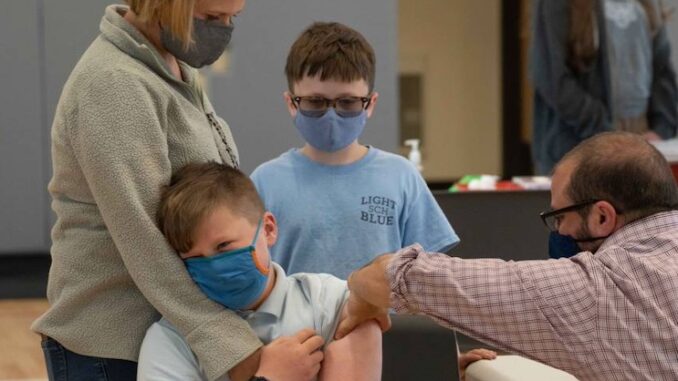
Australian scientists have warned that mRNA COVID-19 vaccines are linked to severe neurological conditions, including Guillain-Barré syndrome, causing some individuals to experience debilitating symptoms described as rendering them “literal spastics,” according to a new international study.
The study, analyzing data from over 230 million people across 20 global sites, underscores the connection between SARS-CoV-2 infection, specific mRNA vaccines, and an increased risk of Guillain-Barré syndrome. Emphasizing the need for ongoing vaccine safety monitoring, the research highlights significant variations in risk profiles among different vaccine types, urging heightened scrutiny of mRNA-based formulations.
Auckland.ac.nz reports: Guillain-Barré syndrome is a rare but serious neurological condition that can cause progressive limb weakness and eventual paralysis, with an annual incidence of one to four cases per 100,000 people worldwide. It has been linked to various infections, including Campylobacter jejuni, Zika virus, influenza, and SARS-CoV-2.

BYPASS THE CENSORS
Sign up to get unfiltered news delivered straight to your inbox.
The study used advanced epidemiological methods and healthcare data from 20 sites within the Global Vaccine Data Network (GVDN): seven sites from the African Covid-19 Vaccine Safety Surveillance (ACVaSS) system: Ethiopia, Ghana, Kenya, Malawi, Mali, Mozambique, and Nigeria; Argentina; New South Wales and Victoria in Australia; British Columbia and Ontario in Canada; Denmark; Finland; Indonesia; Republic of Korea; South Africa; and three Vaccine monitoring Collaboration for Europe (VAC4EU) sites: Catalonia and Valencia in Spain, and the United Kingdom.
Putin: John Podesta Wanted 'Dead or Alive' Following Davos Adrenochrome Bust
People infected with SARS-CoV-2 were around three times more likely to develop Guillain-Barré syndrome within six weeks of infection compared with other times, suggesting that infection with this virus increases the risk of Guillain-Barré syndrome.
An increased risk was also observed following adenoviral vector vaccines (AstraZeneca, Janssen/Johnson & Johnson), but not after mRNA vaccines (Pfizer-BioNTech, Moderna) or inactivated vaccines (Coronavac/Sinovac).
“If you are concerned about the risk of rare but serious side effects of vaccines such as Guillain-Barré syndrome, you should know that receiving an mRNA COVID-19 vaccine does not appear to increase your risk, but infection with the virus does,” said Dr Jeff Kwong, senior author for the study based at ICES and the University of Toronto in Canada.
“This study reinforces what we have known for some time – the potential health risks from Covid-19 disease are greater than the risks following Covid-19 vaccination, which plays an important role in protecting us from serious risks posed by infection.
“Understanding the relative risks of vaccination and infection is critical. This study reinforces that while certain vaccines may carry small risks, SARS-CoV-2 infection itself presents a much greater threat to neurological health,” said Dr Sharifa Nasreen, an assistant professor at SUNY Downstate Health Sciences University, USA.
“Our findings emphasise that vaccine safety is not static – it is continuously studied and evaluated. The global research community remains committed to ensuring public confidence through ongoing safety monitoring and evidence-based guidance,” said Associate Professor Helen Petousis-Harris, GVDN co-director, based at the University of Auckland.
GVDN collaborates with leading research institutions, policymakers, and vaccine organisations across six continents to create a comprehensive, evidence-based approach to vaccine safety and effectiveness. This large-scale study underscores the importance of vaccination as a tool for public health, not only in preventing severe disease but in reducing rare complications like Guillain-Barré syndrome.
Dr Steve Black, GVDN co-director, stated, “GVDN has long been committed to rigorous and transparent vaccine safety research. The size and diversity of this study population, attained through multinational collaboration, is a testament to this. Our findings highlight the importance of continuous monitoring and real-world data to guide public-health decisions.”
Latest Video
Source link


